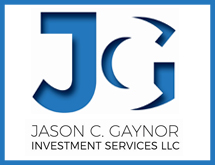Top Tips 2020 – Pay Extra on Mortgage or Pay Yourself, Not Lender?
Article provided by Jason Gaynor
A common financial goal for many of us is to be "debt free", and the biggest debt for most of us is our mortgage. Paying additional towards principal, or utilizing a 30 year mortgage, while paying the 15 year mortgage payment, are very common methods of accelerating your goal of gaining freedom from home debt. Another method not as widely utilized is, instead of paying your lender extra principal, but "paying yourself".
Let's take a closer look at both methods of accelerating your debt free goals. Today, 30 year fixed rate mortgages have an interest rate of approximately 3.75%. Thus, every dollar of additional principal paid to the lender has a guaranteed fixed return of 3.75%. Pretty good for a guaranteed return, double the return of most FDIC insured CDs.
However, today's investors rarely utilize guaranteed, FDIC insured investments for growth; stock market based investments, while not guaranteed, can offer a potentially much greater return. 7%, 8%, 9%, or even greater than 10% rates return are common long term rates of return of professionally managed mutual fund investments. Most of us already own these investments in our 401K or IRA, and these same investments are readily available for other uses, such as a savings account earmarked for paying off a mortgage early. Clearly, a 7.5% annual return is far more desirable than a 3.75% rate of return.
The potential impact in this higher savings rate is significant; for instance look at this example of three homeowners who take out a $250,000 30 year mortgage with a fixed rate of 3.75%*:
- Homeowner A pays the monthly payment of $1158 per month, and pays no additional principal towards the balance of the loan. After 15 years, the remaining loan balance is $159,206.
- Homeowner B pays the monthly payment of $1158 per month, and puts forth an additional $599 per month to the principal balance; the equivalent of a 15 year mortgage payment. This additional $107,820 of additional payments accelerates the mortgage payoff tremendously, and have only $14,994 of remaining loan balance after 15 years.
- Homeowner C pays the monthly payment of $1158 per month, and deposits $599 per month into an investment account that returns an average of 7.5% annually. After 15 years, the account value is $195,281, meaning they can not only pay off their home early, but still have over $36,000 leftover. In addition, had they chosen to do so, they had adequate funds to pay the mortgage off during the 13th
* calculators provided by https://www.dinkytown.net
While this savings account may be earmarked for mortgage payoff, it can be used for anything; let's face it, one thing that makes all of us feel more comfortable is the feeling of accessible, liquid savings.
Unplanned expenses are part of life, and also home ownership. Building a pool of accessible funds can not only help us to meet our financial goals, but also provide some peace of mind.
It’s easy to see the benefits of utilizing market returns to help you pay off your low interest mortgage at an accelerated pace, while providing you some additional liquidity and flexibility for the “what-ifs” of life. An investment account is easy and incredibly affordable to get started, typically with $50 per month, you can be up and running. Speak to your financial advisor to gain some additional understanding, and see if this may be a fit for you, and your overall financial plan.
Jason C Gaynor, Registered Representative offering securities, through NYLIFE Securities, LLC, Member FINRA/SIPC, a Licensed Insurance Agency, 7500 College Blvd, Ste 800, Overland Park KS 66210 913-451-9100. Jason C Gaynor Investment Service LLC is independently owned and operated from NYLIFE Securities LLC and its affiliates.

